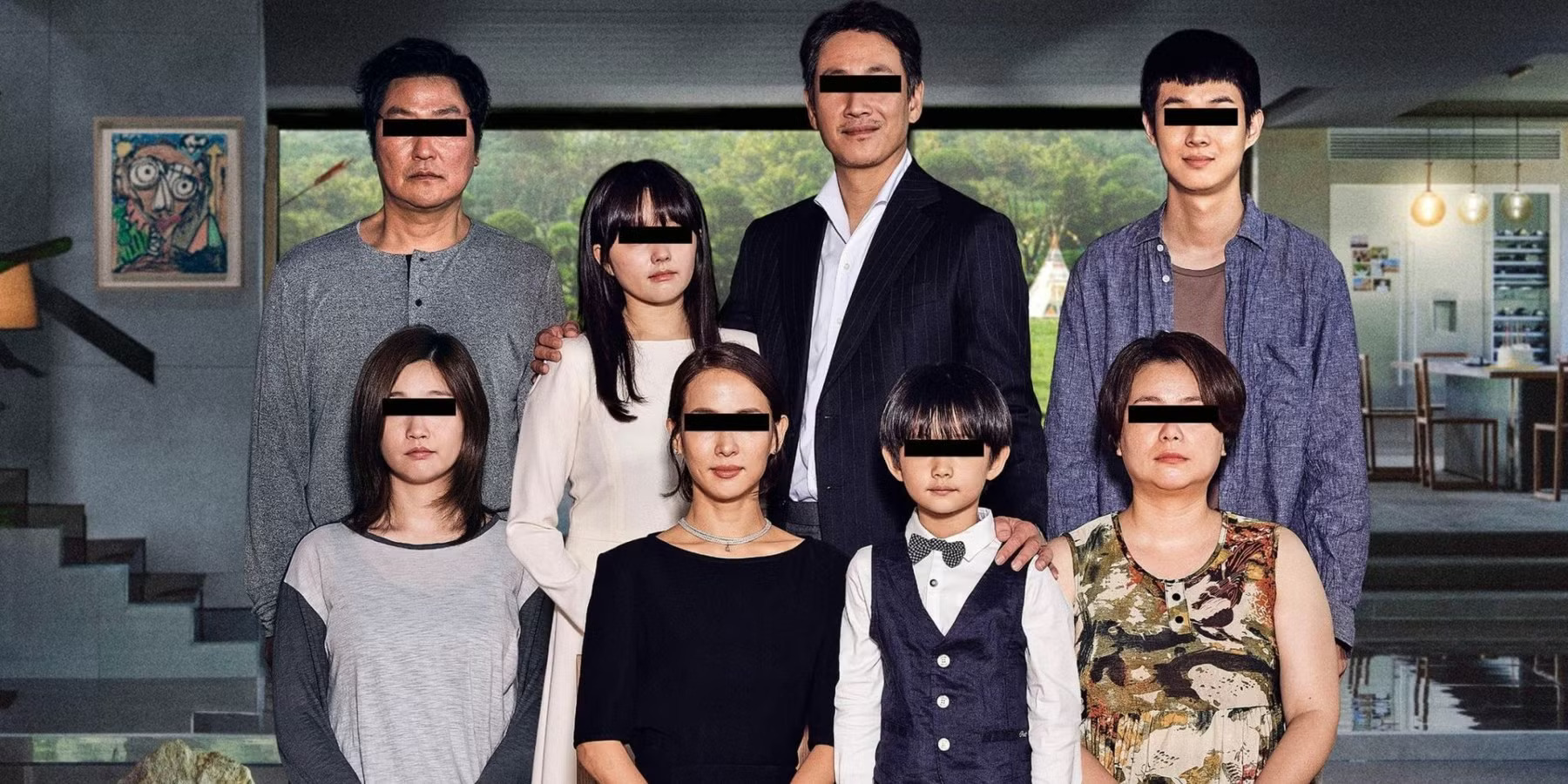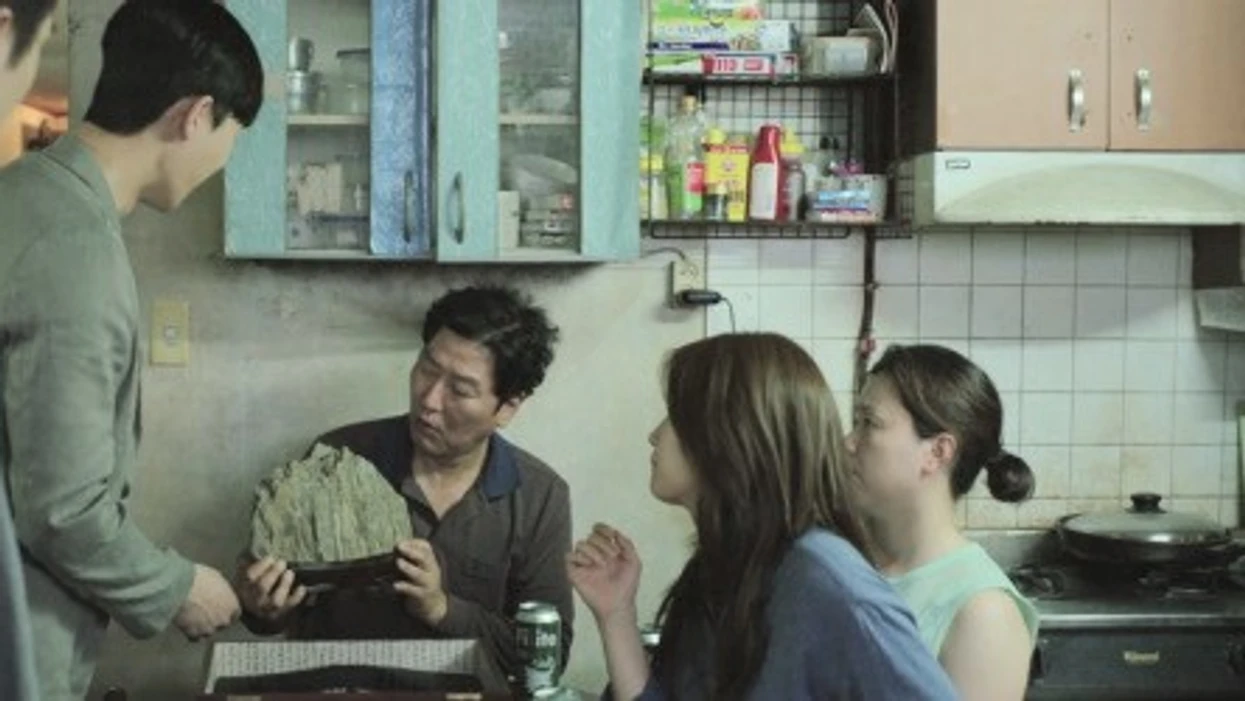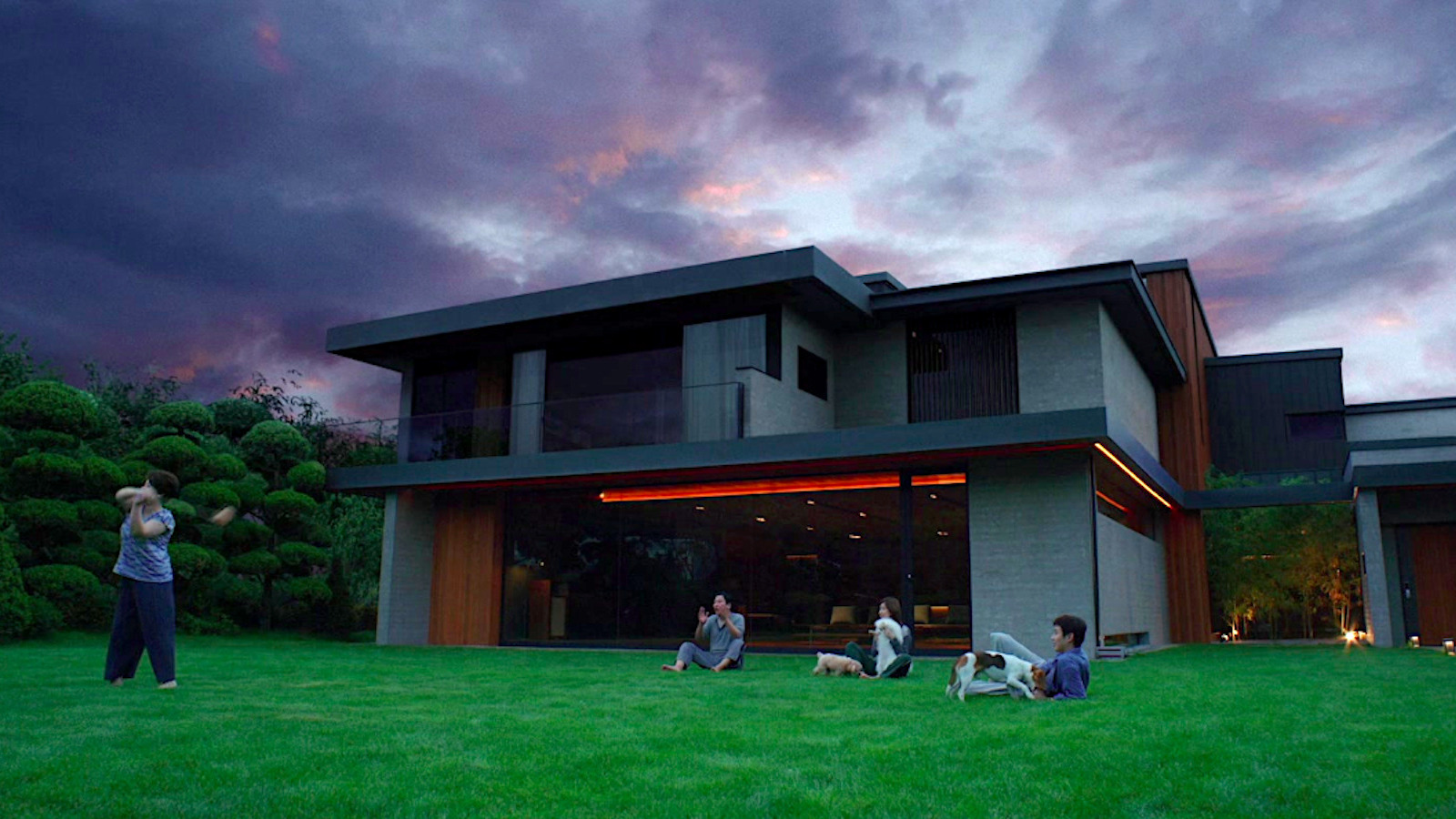Bong Joon-ho’s films often conclude where they began, highlighting the world’s indifference. His characters endure profound personal changes, yet the world continues to revolve as before. In his films, the characters’ internal growth contrasts with the external stability of society. From Memories of Murder to Okja, this recurring theme demonstrates the oppressive weight of societal structures, which perpetuate even after the final frame.
Parasite continues Bong’s exploration of social disparity, focusing on class struggles. Awarded the Palme d’Or at Cannes, Parasite delves into the lives of two families from different social strata. The Kims, who live in a half-basement apartment, embody the aspiration to break free from poverty. Their desperate attempts to infiltrate the Park family’s luxurious world highlight the pervasive divide between the rich and the poor, with Bong drawing on both personal and societal themes.
The film begins with the Kim family living in a cramped half-basement apartment, struggling to make ends meet. They have to fold pizza boxes for meager cash while surviving in a space that’s barely above ground level. This physical environment reflects their psychological state: limited but still full of hope. The Kim family represents those at the lowest rung of the socio-economic ladder, battling just to survive and find opportunities in a society built on inequality.

Ki-woo’s Lucky Break Leads the Kim Family Into the Park Household
A stroke of luck changes the Kims’ fortunes when Ki-woo, the son, is offered a tutoring job for Da-hae, the Park family’s daughter. This opportunity sparks a chain of events that allows the entire Kim family to infiltrate the Parks’ world, assuming various roles within the household. Ki-jung becomes an art therapist for the Parks’ son, Da-song, Chung-sook becomes the housekeeper, and Ki-taek becomes their driver. This infiltration symbolizes the Kims’ attempts to climb the social ladder, exploiting every opportunity.
However, the plot takes a dark turn when the Kims discover the true depths of the Park household’s secrets. The original housekeeper returns, revealing that her husband, Kun-sae, has been living in a secret bunker beneath the Park home for years. The Kims are horrified by Kun-sae’s desperate, hidden existence. This revelation forces a confrontation, with the Kims rejecting any sympathy for Kun-sae, seeing him as a reminder of the depths they’re willing to go to achieve their dreams, even at the expense of others.
In the third act of Parasite, the Kims temporarily trap Mun-kwang and Kun-sae in the bunker. But when the Parks ask the Kims to work during their day off, the fragile balance between the two families collapses.
The Park family’s carefree, rich existence contrasts starkly with the Kims’ precarious, desperate position. The tension peaks at a birthday party, where Kun-sae emerges from the bunker, causing mayhem. This moment of violence is a turning point, revealing the depth of the Kims’ entrapment in their servitude and the harsh consequences of their deception.

Ki-taek’s Violent Act Reflects the Ultimate Consequence of Inequality
Ki-taek, the Kim family patriarch, reaches his breaking point during the chaos. When the Parks remain indifferent to Ki-jung’s injuries, demanding that Ki-taek drive them to the hospital while his daughter bleeds, the injustice becomes unbearable. Ki-taek’s decision to stab the Park patriarch and flee symbolizes the desperation and violence caused by systemic oppression. His actions show the extent to which the Kims are pushed by the crushing weight of servitude, revealing that the cycle of inequality drives individuals to extreme measures.
In the film’s coda, Bong introduces a striking metaphor: the bunker beneath the Park home. Ki-taek, having committed an irreversible act of violence, hides in the same bunker once occupied by Kun-sae. The moral and social implications of this decision suggest that the rigid class structure remains unchanged. The Parks move out, but another wealthy family will replace them, and another poor family will take their place below. This cyclical pattern emphasizes that while individual lives may shift, the broader system of inequality persists, trapping people in unending cycles of servitude.
Ki-woo’s final moments represent an illusory dream of upward mobility. After being injured in the chaos, he imagines a life where he goes to college, becomes successful, and buys the Park house. He fantasizes about a future where his father would emerge from the bunker, and they would live together in luxury. This vision of success seems like an escape from their current poverty, but the film’s ending underscores the futility of this dream. The reality is that the Kim family is trapped, caught in a cycle they can’t break.
Bong Joon-ho’s films, particularly Parasite, reflect his view of the world: one filled with harsh, unrelenting truths. While he acknowledges the efforts of people trying to change society, his films do not offer solutions. Instead, they seek to expose the brutal realities of life. Through visceral, often tragic storytelling, Bong invites the audience to confront the explosive weight of inequality, violence, and oppression. His films are not meant to change the world directly, but to make us feel the urgency and pain of the systems that shape our lives.
Hope in Parasite is portrayed as both necessary and destructive. Ki-woo’s desire to buy the Park house and change his life reflects an optimistic drive, but the final shot brings a crushing reminder that this dream is impossible. Bong’s ending serves as a stark commentary on the reality of social mobility: it’s a Sisyphean struggle, a cycle that ultimately drains those who participate in it. The hope that sustains the characters in the face of systemic oppression is, paradoxically, the same force that causes their eventual ruin.



